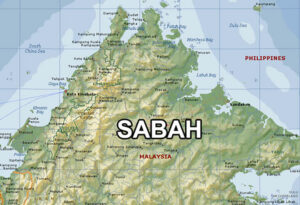By Kenneth Christiane L. Basilio, Reporter
THE GOVERNMENT should look at reviving its territorial claims over Sabah if Malaysia insists on protesting against the Philippines’ new maritime laws, a congressman said on Monday, arguing the protest lacked basis.
Malaysia’s Deputy Foreign Minister Mohamad Alamin said the government has reviewed the reference documents related to the Philippines’ laws and found that they touch upon claims to the Malaysian state of Sabah on Borneo island.
“Malaysia has no basis for its protest because the reference materials are not part of the two laws. The laws are to be taken in their import and the meaning of their provisions. They do not mention our country’s claim to Sabah,” Cagayan de Oro Rep. Rufus B. Rodriguez said in a statement.
“If Malaysia strongly protests our new maritime zones and archipelagic sea lanes laws, I suggest the Philippine government strongly revive our claim to Sabah, which rightfully belongs to the Philippines by historic right or legal title,” he added.
Philippine President Ferdinand R. Marcos, Jr. signed the twin maritime laws in November. The measures are intended to strengthen the country’s maritime claims and bolster Manila’s territorial integrity over its waters following repeated sea rows with Beijing in the South China Sea.
The Philippines has a dormant claim to the eastern part of Sabah dating back to colonial times, with its highest court ruling in 2011 that the territorial stake was never relinquished and may be pursued in the future.
Mr. Rodriguez said that the “new maritime laws… do not deal with land territories like Sabah,” with the measures in accordance with the United Nations Convention on the Law of the Sea.
An analyst, however, said the filing of the protest is “understandable” as the maritime laws impeded Kuala Lumpur’s sovereignty over Sabah.
“For the longest time, the discussions between the Philippines and Malaysia over the island have stalled, with the latter exerting considerable presence over it,” Josue Raphael J. Cortez, a lecturer at the School of Diplomacy and Governance of De La Salle-College of St. Benilde, said in a Facebook Messenger chat.
Reviving Philippine claims over Sabah could even jeopardize diplomatic, defense, and economic ties between Manila and Kuala Lumpur, he added.
Mr. Cortez noted that Malaysia and the Philippines had just agreed to bolster technical skills and disaster response, tackled potential deployment of Malaysian SMART tool for disaster response, and held talks on fortifying defense and economic partnerships.
“Concerning trade and investment, for instance, should this proposition move and affect our ties, then the number of Malaysian investors becoming more enticed to bring their business in our shores may actually be discouraged from doing so,” he said.
“So, to speak, this proposition may put all these developments in peril.”
Malaysia’s move followed China’s protest on Nov. 8, with its foreign ministry saying the measures “gravely infringes” China’s sovereignty and maritime rights and interests over the waterbody.
The Philippines and China have repeatedly sparred this year over disputed areas of the South China Sea, including the Scarborough Shoal, one of the waterway’s most contested features.
China has laid claims to almost the entirety of South China Sea, a conduit for more than $3 trillion of annual trade, including parts claimed by the Philippines, Vietnam, Indonesia, Malaysia, and Brunei.
The Permanent Court of Arbitration in 2016 ruled that China’s claim over the waterway was without legal basis, a ruling it has since rejected. — with Reuters

